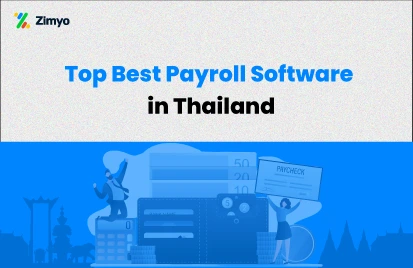Many employees can be seen asking for a loan to their employers while facing an emergency or financial difficulty. Well, it might be a good idea for employees, as their employer may offer the loan on more favorable terms than a commercial bank and would line up repayment dates with paycheck dates. But from an employer’s point of view, it is quite risky as in the case of adversities other than the job, employees have nothing to lose and they are employers who would be bearing the loss. So, the question that arises in their mind is that Is sanctioning Employee Loans a risk worth taking? Though if the pros and cons of lending money are studied thoroughly in the first place then the odds of the happening of such an event are considerably reduced. So let’s have a look at all those points that employers must keep in mind before sanctioning Employee Loans:
Employee loans can enhance loyalty
When an employee receives some kind of assistance from his employer, then a feeling of gratefulness and admiration buds in his heart. This means that the chances of the employee leaving the organization gets reduced significantly. When employers help their employees in their time of need and seeing that they placed faith in them to repay the loan makes employees more committed to their employer and the organization and hence helps with retention and job satisfaction.
Employees would focus more on their work
If an employee is facing a problem in paying his family medical bills, rents, or has other financial concerns, then it can affect his work as it will become difficult for him to focus. Lending money to an employee for working through such difficulties might help him to improve work focus and productivity. Knowing that the employer believes in him and has lent the money would motivate the employee to work harder as well.
Repayment might become troublesome
All business organizations come across a variety of situations they need to deal with. If an employee needs a loan for meeting his regular and recurring obligations then an extension of his loan might turn out to be more harm than help. In such cases, going for financial counseling would be a better choice than extending a loan that is unlikely to be repaid.
Employees might feel discriminated
While extending loans to employees, it is necessary to review their financial criteria for the assessment of their ability to repay the loan. However, if one employee ends up being a better candidate for a loan than another according to the assessment, then extending one’s loan and refusing another might list your organization up for discrimination lawsuits. If the reasons for refusing a loan to one employee are not justified, it may also make it possible for that employee to sue the employer for perceived discrimination.
Employer tax obligations might increase
Sanctioning employee loans might let employers fall in the hole of more taxes if formalities are not done properly. The terms of the loan must be clearly defined and its interest rate should be applied as per the applicable federal rate. The consequences of improper lending may bring a lot of trouble to the employer and he might also be subject to penalties or tax obligations, or might even be charged with doing something illegal if the loan is not filed correctly.
Conclusion
There is no doubt that sanctioning employee loans is a risk but whether sanctioning Employee Loans is a risk worth taking or not can vary depending on the company’s health and the financial understanding of the employee who is asking for the loan. And before extending a loan, it is crucial to look deep into its benefits and disadvantages along with all applicable laws and make sure that sanctioning or extension of a loan would not harm your business in any way possible.
Also Read: FinTech- a step-up for your business




